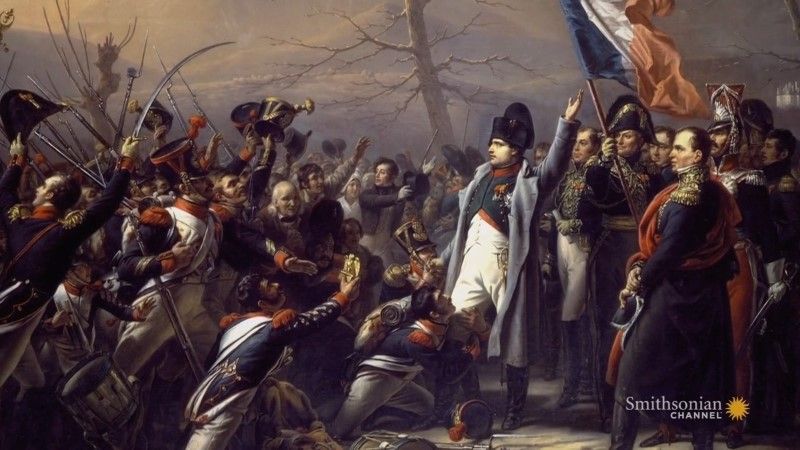Napoleon’s Waterloo: It lasted only one day on a small piece of land, but the impact the Battle of Waterloo had on history is massive and far-reaching.
This is the definitive account of the fight that ended Napoleon’s rule as emperor and altered the destinies of France, Europe, and the world. Based on testimonies of those involved, we reveal the tactical decisions and human dramas that transpired on both sides of the battle to give you an unprecedented look of one of history’s most epic conflicts.
Napoleon’s Waterloo
The Battle of Waterloo was fought on Sunday, 18 June 1815, near Waterloo in Belgium, part of the United Kingdom of the Netherlands at the time.
A French army under the command of Emperor Napoleon Bonaparte was defeated by two of the armies of the Seventh Coalition, a British-led coalition consisting of units from the United Kingdom, the Netherlands, Hanover, Brunswick and Nassau, under the command of the Duke of Wellington, referred to by many authors as the Anglo-allied army or Wellington’s army, and a Prussian army under the command of Field Marshal von Blücher, referred also as Blücher’s army. The battle marked the end of the Napoleonic Wars.
Waterloo proved a decisive battle in more than one sense. Every generation in Europe up to the outbreak of the First World War looked back at Waterloo as the turning point that dictated the course of subsequent world history, seeing it in retrospect as the event that ushered in the Concert of Europe, an era characterised by relative peace, material prosperity and technological progress.
The battle definitively ended the series of wars that had convulsed Europe, and involved many other regions of the world, since the French Revolution of the early 1790s. It also ended the First French Empire and the political and military career of Napoleon Bonaparte, one of the greatest commanders and statesmen in history.
There followed almost four decades of international peace in Europe. No further major conflict occurred until the Crimean War of 1853–1856. Changes to the configuration of European states, as refashioned after Waterloo, included the formation of the Holy Alliance of reactionary governments intent on repressing revolutionary and democratic ideas, and the reshaping of the former Holy Roman Empire into a German Confederation increasingly marked by the political dominance of Prussia.
The bicentenary of Waterloo prompted renewed attention to the geopolitical and economic legacy of the battle and to the century of relative transatlantic peace which followed.





Good interesting Web Page